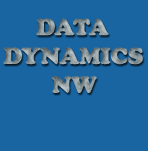| Data Dynamics Northwest | Database development based on the client's needs and state-of-the-art technology |
|
|
|
|
|
|
|
|
Defined
A database is a collection of data. An address book or a
phone directory are well known databases. Unlike one of these written or
printed databases, with a computerized database you are not stuck with a
single format. Not only can you search for a phone number, you can also
search for an address, a first name, or whatever other data, or combination
of data, is in the collection. When you add the fact that a computer
database is not restricted to certain data like name, address, and phone
number, then you really have something. You can collect any data you
specify, such as part numbers, order numbers, dates, or product prices.
|
|
|
|
|
|
Copyright 2006 -2011 Data Dynamics Northwest |
|
|
